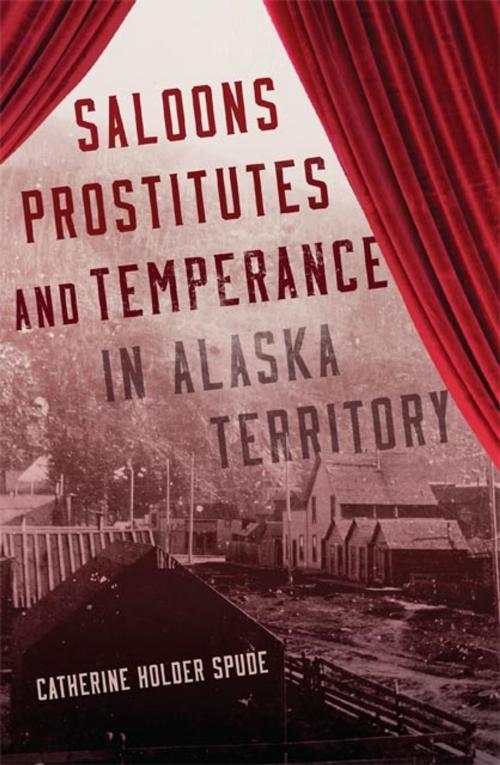Saloons, Prostitutes, and Temperance in Alaska Territory
Nonfiction, History, Americas, United States, 20th Century, Social & Cultural Studies, Social Science, Gender Studies| Author: | Catherine Holder Spude | ISBN: | 9780806149967 |
| Publisher: | University of Oklahoma Press | Publication: | February 4, 2015 |
| Imprint: | University of Oklahoma Press | Language: | English |
| Author: | Catherine Holder Spude |
| ISBN: | 9780806149967 |
| Publisher: | University of Oklahoma Press |
| Publication: | February 4, 2015 |
| Imprint: | University of Oklahoma Press |
| Language: | English |
Prostitution, gambling, and saloons were a vital, if not universally welcome, part of life in frontier boomtowns. In Saloons, Prostitutes, and Temperance in Alaska Territory, Catherine Holder Spude explores the rise and fall of these enterprises in Skagway, Alaska, between the gold rush of 1897 and the enactment of Prohibition in 1918. Her gritty account offers a case study in the clash between working-class men and middle-class women, and in the growth of women’s political and economic power in the West.
Where most books about vice in the West depict a rambunctious sin-scape, this one addresses money and politics. Focusing on the ambitions and resources of individual prostitutes and madams, landlords and saloon owners, lawmen, politicians, and reformers, Spude brings issues of gender and class to life in a place and time when vice equaled money and money controlled politics. Women of all classes learned how to manipulate both money and politics, ultimately deciding how to practice and regulate individual freedoms.
As Progressive reforms swept America in the early twentieth century, middle-class women in Skagway won power, Spude shows, at the expense of the values and vices of the working-class men who had dominated the population in the town’s earliest days. Reform began when a citizens’ committee purged Skagway of card sharks and con men in 1898, and culminated when middle-class businessmen sided with their wives—giving them the power to vote—and in the process banned gambling, prostitution, and saloons.
Today, a century after the era Spude describes, Skagway’s tourist industry perpetuates the stereotypes of good times in saloons and bordellos. This book instead takes readers inside Skagway’s real dens of iniquity, before and after their demise, and depicts frontier Skagway and its people as they really were. It will open the eyes of historians and tourists alike.
Prostitution, gambling, and saloons were a vital, if not universally welcome, part of life in frontier boomtowns. In Saloons, Prostitutes, and Temperance in Alaska Territory, Catherine Holder Spude explores the rise and fall of these enterprises in Skagway, Alaska, between the gold rush of 1897 and the enactment of Prohibition in 1918. Her gritty account offers a case study in the clash between working-class men and middle-class women, and in the growth of women’s political and economic power in the West.
Where most books about vice in the West depict a rambunctious sin-scape, this one addresses money and politics. Focusing on the ambitions and resources of individual prostitutes and madams, landlords and saloon owners, lawmen, politicians, and reformers, Spude brings issues of gender and class to life in a place and time when vice equaled money and money controlled politics. Women of all classes learned how to manipulate both money and politics, ultimately deciding how to practice and regulate individual freedoms.
As Progressive reforms swept America in the early twentieth century, middle-class women in Skagway won power, Spude shows, at the expense of the values and vices of the working-class men who had dominated the population in the town’s earliest days. Reform began when a citizens’ committee purged Skagway of card sharks and con men in 1898, and culminated when middle-class businessmen sided with their wives—giving them the power to vote—and in the process banned gambling, prostitution, and saloons.
Today, a century after the era Spude describes, Skagway’s tourist industry perpetuates the stereotypes of good times in saloons and bordellos. This book instead takes readers inside Skagway’s real dens of iniquity, before and after their demise, and depicts frontier Skagway and its people as they really were. It will open the eyes of historians and tourists alike.















